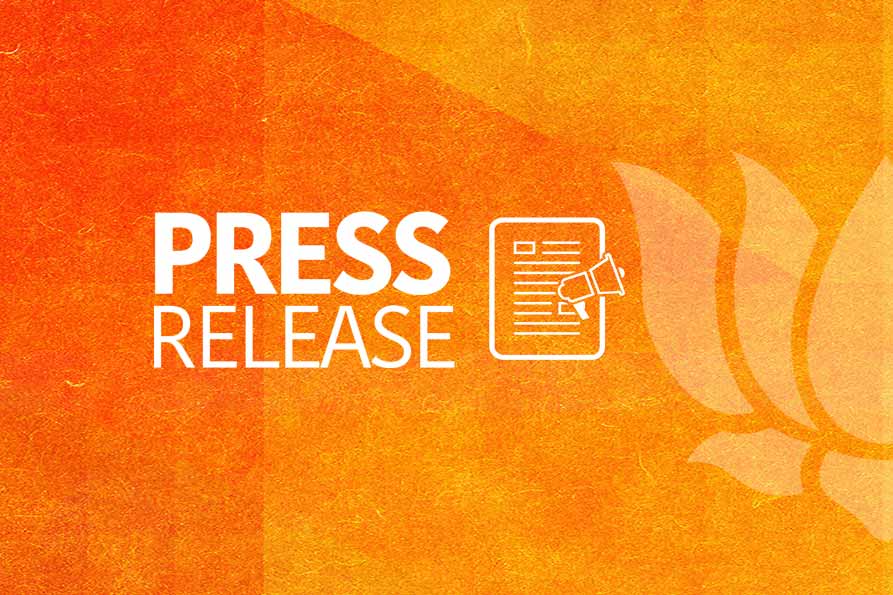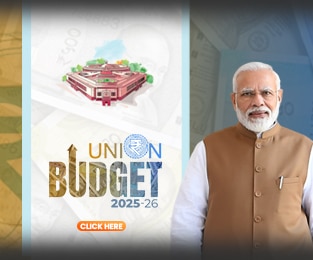
Kudos for Dr. S.Y. Quraishi, Chief Election Commissioner, for scrapping this year’s Rajya Sabha elections in Jharkhand State.
 This is the first time in the history of Indian elections in any state that the polling to the Rajya Sabha in that state has been halted midway by the Election Commission itself, even before the votes have been fully counted.
This is the first time in the history of Indian elections in any state that the polling to the Rajya Sabha in that state has been halted midway by the Election Commission itself, even before the votes have been fully counted.
The inputs that made the Commission take this decision were as follows :
(a) Three Members of Parliament - Gurudas Das Gupta, Babu Lal Marandi and Sharad Yadav - made written representations to the Election Commission expressing apprehensions that money power was being used and horse trading was being indulged in in the Jharkhand R.S. polls to buy votes of vulnerable MLAs;
(b) Two independent candidates had been proposed by several MLAs belonging to recognised political parties when those parties had themselves set up their candidates for the election.
(c) On the morning of 30th March, 2012, the day of poll, an Innova Car was apprehended by district police authorities on suspicion that it was carrying a large amount of unaccounted cash for the purpose of distribution on behalf of R.K. Agrawal, an independent candidate in this election. The search of the vehicle yielded cash of Rs. 2.15 crores. The cash was being carried by Sudhanshu Tripathy, who admitted that the money had been given to him by the son-in-law of R.K. Agrawal. This vehicle was registered in the name of Suresh K. Agrawal, brother of R.K. Agrawal.
(d) The Election Commission’s detailed order stopping the poll process mentions that the Car in which this unaccounted money was traced was being followed by two more vehicles also presumably carrying money, but after the interception of the first vehicle, these two vehicles returned to Jamshedpur.
Those concerned with the purity of elections have always felt distressed that affluent candidates who file their nominations for the Rajya Sabha without any evident support of the requisite number of MLAs to secure their victory often manage somehow to squeeze their way into the House or have a pawn elected by buying up MLAs.
 |
|
In 2003, the NDA Govt. initiated an amendment to the Representation of the People Act to make the voting process in Rajya Sabha elections open. By virtue of this amendment, every elector (MLA) belonging to a Political Party is required to show his marked ballot paper to the authorized representative of his party before inserting it into the ballot box.
This amendment was challenged before the Supreme Court. In Kuldip Nayar vs. Union of India and others, the Hon’ble Supreme Court observed:
“The secrecy of ballot is a vital principle for ensuring free and fair elections. The higher principle, however, is free and fair elections and purity of elections. If secrecy becomes a source for corruption then sunlight and transparency have the capacity to remove it. We can only say that legislation pursuant to the legislative policy that transparency will eliminate the evil that has crept in would hopefully serve the larger object of free and fair elections.”
I think the Election Commission deserves special compliments for the order it has issued. Though some press reports have referred to its order as a countermanding order. This word ‘countermand’ does not appear anywhere in the press note issued. Countermanding would mean revoking some earlier decision or order. But when the electoral process is not yet complete, and there is no result as yet, how can the result be revoked?
The operative paragraph of the Election Commission decision reads as follows:
Accordingly, the Commission hereby recommends, under Article 324 of the Constitution read with Section 21 of the General Clauses Act, 1897 and all other powers enabling it in this behalf, to the Hon’ble President that she may be pleased to rescind the notification No.318/1/2012(1) dated 12th March, 2012, insofar as that notification relates to the calling upon the elected members of the Jharkhand Legislative Assembly to elect two members to the Council of States.”
This 12-page order has been signed by all the three Election Commissioners, namely, C.E.C. Dr. S.Y. Quraishi, V.S. Sampath and H.S. Brahma.
****
In this election the polling had been completed. Only Counting of Votes remained to be done, and the results announced. If that had been completed, the outcome could have been challenged only by an election petition. The matter would have thus gone outside the jurisdiction of the Election Commission, into the arena of the Judiciary!
As it is, because the process was not yet complete and this car carrying Rs. 2.15 crores was seized, the Election Commission has thought fit to write in its speaking order:
“The very object underlying the constitution of the Election Commission as an independent constitutional authority under Article 324 of the Constitution is to ensure that the elections to Parliament and State Legislatures are conducted in a free and fair manner where the purity of elections receives the highest priority. The Hon’ble Supreme Court, in the case of Mohinder Singh Gill Vs. Chief Election Commissioner and Others (AIR 1978 SC 851) has also laid great stress on the conduct of free and fair elections and has observed that Article 324 of the Constitution is a reservoir of power for the Election Commission to act for the avowed purpose of pushing forward a free and fair election and ‘where these (enacted laws) are absent, and yet a situation has to be tackled, the Chief Election Commissioner has not to fold his hands and pray to God for divine inspiration to enable him to exercise his functions and to perform his duties or to look to any external authority for the grant of power to deal with the situation’.”
I hold that today’s decision of the Election Commissioner based on reasonably credible apprehensions is a landmark decision. Together with the NDA amendment of 2003, and today’s precedent, moneybags with no political support would think thousand times before jumping into the fray.
TAILPIECE
As Information and Broadcasting Minister in Shri Morarji Bhai Desai’s Government, I came across the script of a BBC serial on the functioning of the British Parliament over the centuries.
In these papers I read about a remarkable incident that occurred in eighteenth century Britain.
A Member of the House of Commons received a letter from his constituents in which he was asked to vote against certain excise proposals in the budget. According to the BBC feature, the MP sent a stinging reply to his voters as follows:
‘Gentlemen, I have received your letter about the excise, and I am surprised at your insolence in writing to me at all.
‘You know, and I know, that I bought this constituency. ‘You know, and I know, that I am now determined to sell it.
‘And you know what you think I do not know, that you are looking for another buyer.
‘And I know what you certainly do not know, that I have found another constituency to buy.’
Buying and selling of parliamentary constituencies in 18th century Britain was no exception. It was the rule. Very often seats were publicly auctioned – and either sold outright or leased out on an annual basis. A parliamentary publication, Our Parliament, by Strathearn Gordon notes:
Between 1812 and 1832, £ 5000 to £ 6000 was the ordinary price of a seat ‘purchased’ for Parliament, or £ 1800 if “rented” for a year.’
But today, elections in Britain are by and large clean, The history of electoral reforms in Britain should help dispel the general cynicism prevalent in India that there is no real remedy for the growing influence of money power in elections.
L. K. Advani
New Delhi
1 April, 2012
To Write Comment Please Login




.gif)





